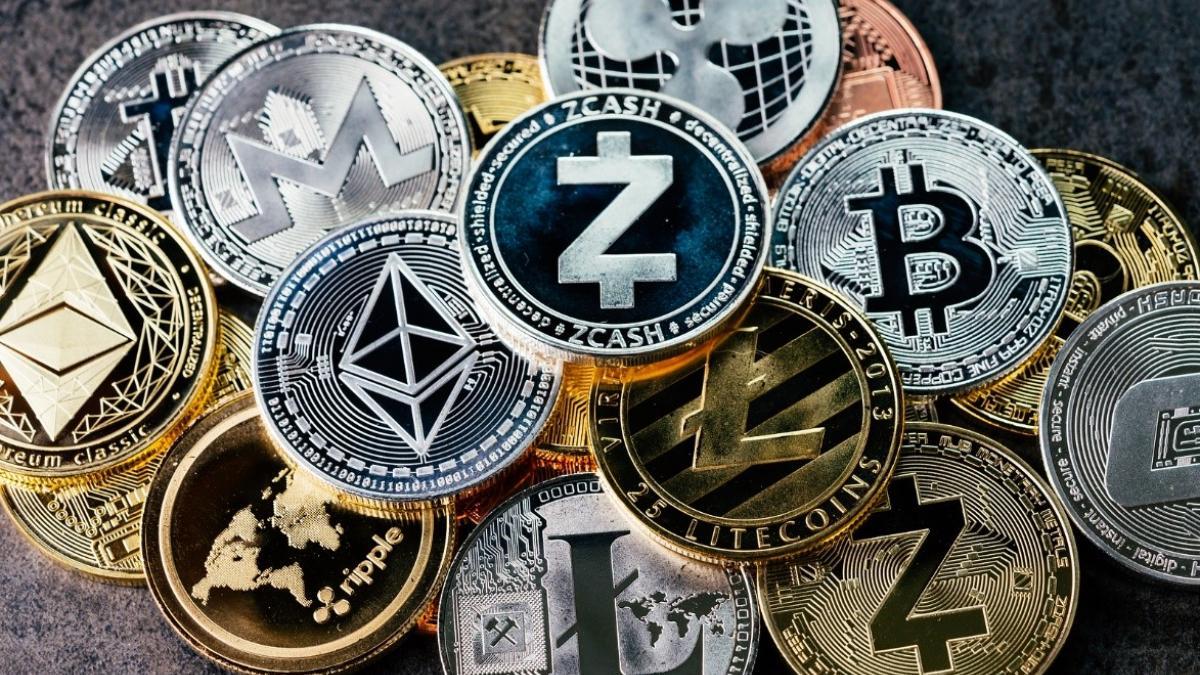North Korea links suspected in $5 million breach of Tapioca DAO
North Korea is suspected of being linked to a $5 million breach of Tapioca DAO. Explore the details and implications of this significant security incident.

In a stark reminder of the persistent cybersecurity challenges facing the cryptocurrency ecosystem, blockchain security firm Beosin has reported a sophisticated $5 million breach of Tapioca DAO, with strong indications of North Korean state-sponsored involvement.
The Anatomy of a Crypto Heist
On October 19, the cybersecurity world was jolted by reports of a meticulously executed attack on Tapioca DAO, a decentralized finance (DeFi) platform. The incident serves as a critical case study of the evolving threat landscape in blockchain technology.
How the Attack Unfolded
The hackers demonstrated an extraordinary level of technical expertise, exploiting subtle vulnerabilities in the platform's smart contract infrastructure. Their approach was calculated and precise:
- Targeted manipulation of cross-chain token mechanisms
- Strategic extraction of multiple cryptocurrency assets
- Exploitation of complex blockchain interoperability features
"This isn't just a random attack," explains Michael Chen, a blockchain security expert. "It shows a profound understanding of DeFi platform architectures and their potential weaknesses."
The North Korean Connection
The attack bears the hallmark signatures of North Korean state-sponsored hacking groups, who have increasingly turned to cryptocurrency theft as a means of:
- Circumventing international economic sanctions
- Generating critical revenue for the regime
- Developing sophisticated cyber capabilities
A Pattern of Systematic Attacks
This incident is part of a broader trend. North Korean cyber units have been responsible for some of the most significant cryptocurrency heists in recent years, with estimated stolen amounts exceeding hundreds of millions of dollars.
Broader Implications for DeFi Platforms
The Tapioca DAO breach exposes critical vulnerabilities in the decentralized finance ecosystem:
Key Vulnerabilities Highlighted:
- Smart contract security gaps
- Cross-chain transaction risks
- Complex interoperability challenges
- Limited real-time monitoring capabilities
Technical Deep Dive
The attack methodology revealed:
- Advanced smart contract exploitation techniques
- Sophisticated token manipulation strategies
- Multi-platform fund extraction mechanisms
Industry Response and Recommendations
Blockchain security experts are calling for comprehensive action:
Recommended Security Measures:
- Comprehensive smart contract auditing
- Advanced threat detection systems
- Real-time transaction monitoring
- Enhanced cross-chain security protocols
- Collaborative threat intelligence sharing
Regulatory and Compliance Perspectives
The incident raises critical questions about:
- International cybersecurity cooperation
- Regulatory frameworks for cryptocurrency platforms
- Mechanisms to track and prevent state-sponsored cyber theft
Financial and Market Impact
Immediate consequences include:
- Potential investor confidence erosion
- Increased focus on platform security investments
- Accelerated development of advanced security technologies
Tapioca DAO's Initial Response
The platform has:
- Acknowledged the security breach
- Initiated internal investigations
- Begun engaging with cybersecurity experts
- Started assessing total financial damage
Broader Cryptocurrency Security Landscape
The attack underscores the critical need for:
- Continuous technological adaptation
- Proactive security strategies
- Advanced defensive mechanisms
- Robust verification protocols
Expert Perspectives
"This breach is not just about a single platform," notes Sarah Rodriguez, a blockchain security analyst. "It's a wake-up call for the entire DeFi ecosystem about the sophisticated threats we're facing."
Learning from the Incident
Key takeaways include:
- The persistent threat of state-sponsored cyber attacks
- Importance of multi-layered security approaches
- Need for continuous platform evolution
- Critical role of threat intelligence
Final Thought - A Call for Vigilance
The Tapioca DAO breach represents more than just a financial loss. It's a critical moment that demands collective action from developers, investors, and regulators to fortify the cryptocurrency ecosystem against increasingly sophisticated threats.
Practical Advice for Investors and Users
- Conduct thorough platform research
- Diversify cryptocurrency investments
- Stay informed about security developments
- Use multi-factor authentication
- Monitor platform security updates
Disclaimer: This analysis is for informational purposes only and should not be considered financial or security advice. Always conduct independent research and consult with cybersecurity professionals.
About the Analysis
- Date: October 19, 2023
- Primary Source: Beosin Blockchain Security Report
- Methodology: Comprehensive cyber threat analysis and expert consultation
The cryptocurrency world continues to evolve, and with it, the challenges of maintaining robust security in an increasingly complex digital landscape.
Tapioca DAO Cryptocurrency Breach: Comprehensive FAQ
Incident Overview
Q1: What happened in the Tapioca DAO breach?
A: A sophisticated cyber attack resulted in the theft of approximately $5 million from the Tapioca DAO platform, with strong suspicions of North Korean state-sponsored hacking involvement.
Q2: When did the breach occur?
A: The breach was reported on October 19, 2023, by blockchain security firm Beosin.
Technical Details
Q3: How did the hackers breach the platform?
A: The attackers exploited vulnerabilities in:
- Smart contract mechanisms
- Cross-chain token transfer systems
- Platform interoperability features
Q4: What makes this attack unique?
A: The attack demonstrated:
- Sophisticated technical expertise
- Precise exploitation of blockchain vulnerabilities
- Strategic multi-platform fund extraction
North Korean Involvement
Q5: Why are North Korean hackers suspected?
A: The attack aligns with previous North Korean cyber operations characterized by:
- Advanced technical capabilities
- Systematic cryptocurrency theft
- Strategic financial motivations
- Complex blockchain exploitation techniques
Q6: How do North Korean hackers target cryptocurrency platforms?
A: Their strategies typically include:
- Identifying smart contract vulnerabilities
- Exploiting cross-chain transfer mechanisms
- Developing sophisticated hacking tools
- Circumventing international sanctions
Impact and Consequences
Q7: How much money was stolen?
A: Approximately $5 million in cryptocurrency assets were extracted during the breach.
Q8: What are the potential consequences of this attack?
A: Potential impacts include:
- Reduced investor confidence
- Increased platform security investments
- Accelerated regulatory discussions
- Enhanced blockchain security developments
Security Implications
Q9: What security vulnerabilities does this breach expose?
A: Key vulnerabilities include:
- Smart contract security gaps
- Cross-chain transaction risks
- Limited real-time monitoring capabilities
- Complex blockchain interoperability challenges
Q10: How can DeFi platforms improve their security?
A: Recommended improvements:
- Comprehensive smart contract auditing
- Advanced threat detection systems
- Real-time transaction monitoring
- Enhanced cross-chain security protocols
- Collaborative threat intelligence sharing
Investor and User Concerns
Q11: What should cryptocurrency investors do?
A: Recommended actions:
- Conduct thorough platform research
- Diversify cryptocurrency investments
- Stay informed about security developments
- Use multi-factor authentication
- Monitor platform security updates
Q12: Are DeFi platforms safe to use?
A: While risks exist, platforms can be safe if they:
- Implement robust security measures
- Conduct regular security audits
- Maintain transparent operations
- Quickly respond to potential vulnerabilities
Regulatory Perspective
Q13: How are regulators responding to such attacks?
A: Regulatory responses typically involve:
- Investigating cryptocurrency platforms
- Developing enhanced security frameworks
- Encouraging international cooperation
- Protecting investor interests
- Tracking potential financial crimes
Q14: What international mechanisms exist to combat such attacks?
A: Current mechanisms include:
- Cybersecurity collaboration
- Financial intelligence sharing
- Sanctions enforcement
- International law enforcement cooperation
Future Outlook
Q15: Will attacks like these continue?
A: Experts predict:
- Continued sophisticated cyber threats
- Ongoing evolution of hacking techniques
- Increased focus on blockchain security
- Rapid technological adaptations
Q16: How is the blockchain community responding?
A: The community is:
- Developing advanced security protocols
- Investing in threat detection technologies
- Sharing threat intelligence
- Creating more robust platform architectures
Technical Understanding
Q17: What are smart contracts? A: Smart contracts are self-executing blockchain agreements with terms directly coded, automatically enforcing contract conditions without intermediaries.
Q18: What makes cross-chain transactions vulnerable?
A: Vulnerabilities arise from:
- Complex interoperability mechanisms
- Varied blockchain protocol differences
- Potential synchronization challenges
- Limited standardization
Prevention and Mitigation
Q19: How can platforms prevent similar attacks?
A: Prevention strategies include:
- Regular comprehensive security audits
- Advanced threat modeling
- Continuous vulnerability assessments
- Implementing multi-layered security protocols
- Developing rapid incident response mechanisms
Q20: What should users do if they suspect a potential breach?
A: Recommended steps:
- Immediately report suspicious activities
- Disconnect connected wallets
- Preserve transaction evidence
- Contact platform support
- Monitor account activities
What's Your Reaction?














